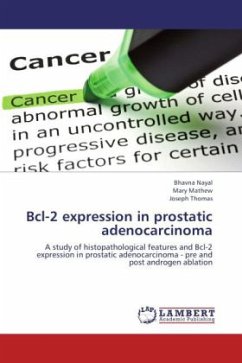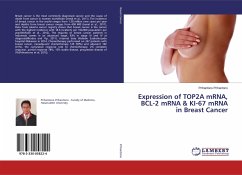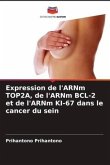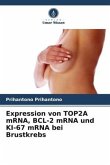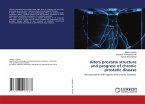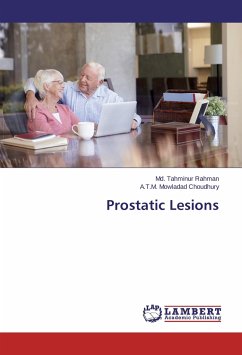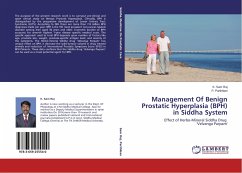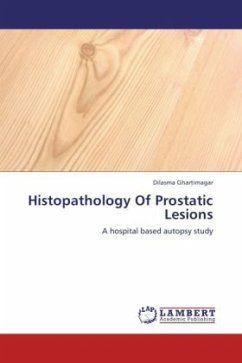Prostate cancer is one of the most common cancers among men and is the leading cause of cancer deaths. As a result of effective PSA screening programmes in the West, most patients are diagnosed at an early favorable stage. Unfortunately, such screening programmes are not popular in India. Majority of the patients with prostatic carcinoma present in an advanced stage in our country, when treatment options are limited. Bcl-2, one of the targets for therapy, is an anti-apoptotic mediator that has been found to be involved in the molecular biology of a wide range of human cancers including prostatic cancer. Overexpression of this protein was found to be associated with progression of prostate cancer to a metastatic and hormone insensitive state characterized by poor responses to various forms of therapy. Hence, therapy against this anti-apoptotic protein could provide a treatment option for such patients. This study was undertaken to highlight the possible role of Bcl-2 in the pathogenesis of prostatic carcinoma and its progression with the hope of developing targeted therapy to combat this disease.
Bitte wählen Sie Ihr Anliegen aus.
Rechnungen
Retourenschein anfordern
Bestellstatus
Storno

